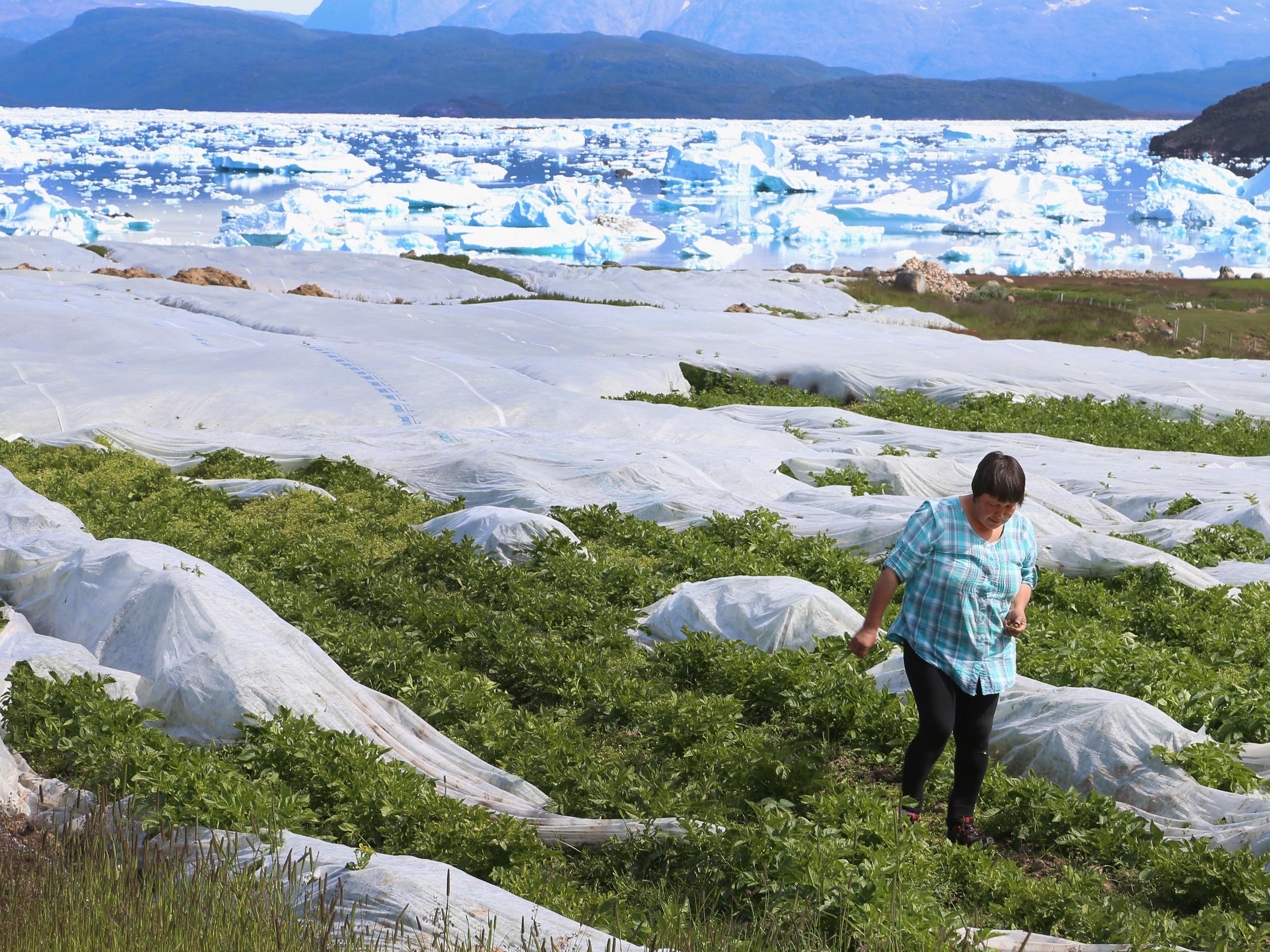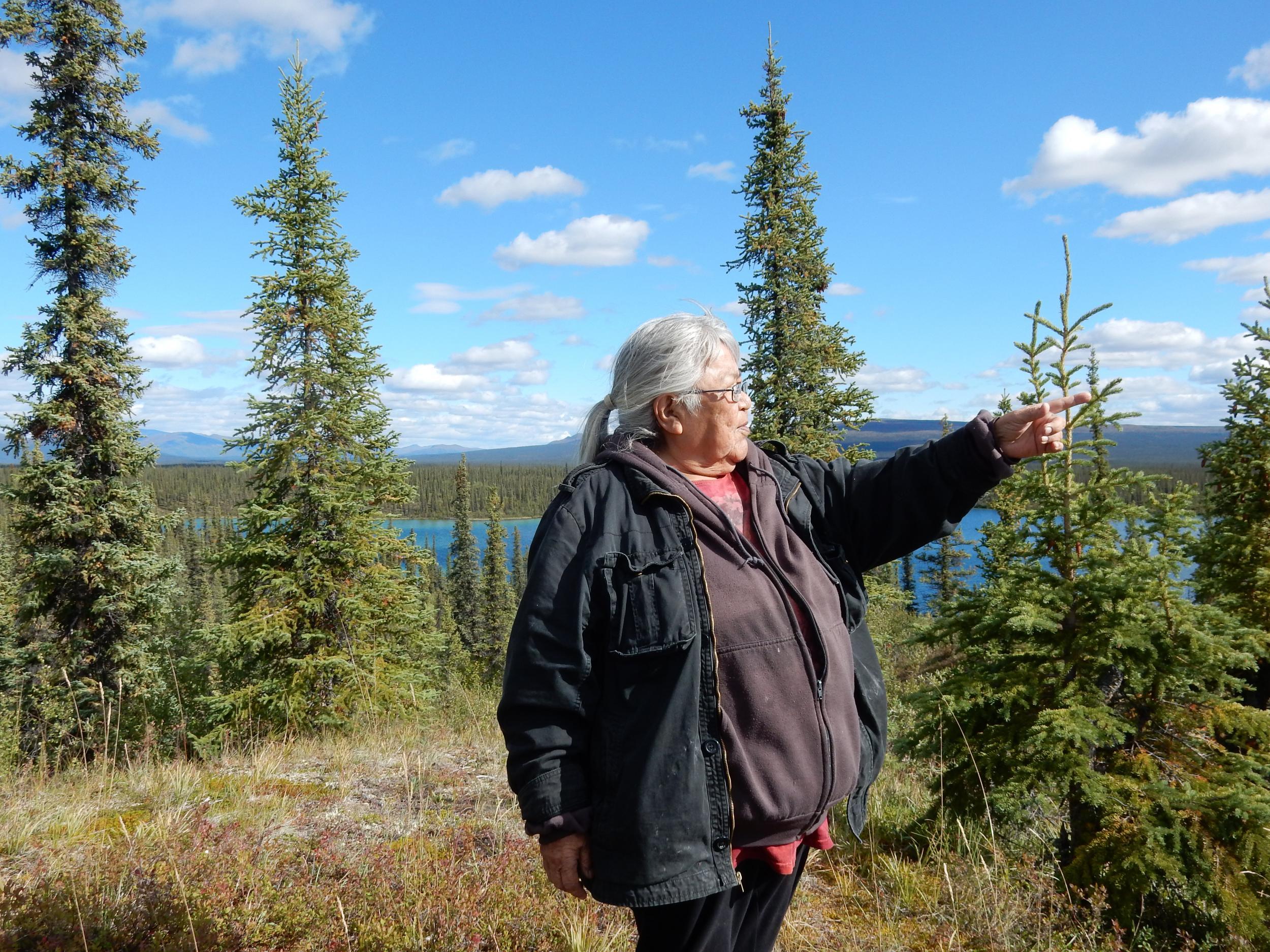Arctic indigenous leaders tell UK it must do more to combat climate change
Exclusive: Representatives from communities living in the far north urge Government to meet and exceed its commitments

Your support helps us to tell the story
From reproductive rights to climate change to Big Tech, The Independent is on the ground when the story is developing. Whether it's investigating the financials of Elon Musk's pro-Trump PAC or producing our latest documentary, 'The A Word', which shines a light on the American women fighting for reproductive rights, we know how important it is to parse out the facts from the messaging.
At such a critical moment in US history, we need reporters on the ground. Your donation allows us to keep sending journalists to speak to both sides of the story.
The Independent is trusted by Americans across the entire political spectrum. And unlike many other quality news outlets, we choose not to lock Americans out of our reporting and analysis with paywalls. We believe quality journalism should be available to everyone, paid for by those who can afford it.
Your support makes all the difference.Leaders from three indigenous Arctic communities have called on the UK Government to meet and exceed its commitments under the Paris Climate Agreement.
They have also urged the MPs to only support sustainable development in the far north.
In an event attended by cross-party MPs, leaders from the Guich’in nation, the Inuit and the Saami people described the impact climate change is having on their communities in the Arctic, and the role the UK must take in helping address the problem.
Polar scientists, explorers and conservationists attended the event alongside leaders from industry, shipping, finance and insurance sectors.
The Arctic is warming at twice the rate of the global average, meaning the effects of climate change there are particularly pronounced. These effects are felt acutely by the indigenous communities living there.
“Climate change really directly affects our way of life,” Sarah James, from the Guich’in nation, told The Independent.
“I see a lot of erosion, permafrost melting, displacement of animals, we are losing a lot of lakes. All those are our way of life,” she said.
Ms James, who was raised undertaking the traditional practices of hunting, fishing and gathering, comes from a community of “caribou [reindeer] people” who live 110 miles north of the Arctic Circle in Alaska.
The Porcupine River caribou herd has been a foundation of the Gwich’in culture for 20,000 years, and over her lifetime she has seen their habits change as they are threatened by fossil fuel extraction and climate change.
“They change their migratory routes, they have got to change their food, and when they are supposed to be fat they’re not fat,” she said.
Ms James said she wanted to thank the UK Government for its role in the Paris Agreement, but said “they need to do more” when it comes to committing to combat climate change and providing funding.

“It’s really important that somebody takes the lead, and President Trump took the wrong lead. That made us sad because every day we have got to deal with climate change,” she said.
“The UK Government has recently reaffirmed its commitment to tackling climate change and meeting the commitments agreed by both the Climate Change Act of 2008 and the Paris Agreement through the Clean Growth Strategy and Industrial Strategy. Neither plan, however, has outlined how it specifically will do so or provided the funding necessary.”
Ms James, together with Josie Okalik Eegeesiak, chair of the Inuit Circumpolar Council, and Jannie Staffansson, who works on environmental issues for the Saami Council, were hosted by MP James Gray.
WWF supported the All Party Parliamentary Group in bringing the Arctic Indigenous leaders to the UK.
“We are the Arctic’s neighbour,” Rod Downie, head of polar programmes for WWF, said to The Independent.
Besides proximity to the Arctic, said Mr Downie, the UK’s status as an influential member of the G7, and a centre of finance, shipping and other industries that impact the region, make it well placed to help combat climate change and its effects in the north.
As well as reinforcing the urgency of the UK Government meeting its commitment for climate change, the meeting also has significance for the upcoming revision of the UK government’s Arctic policy.
The UK’s Arctic policy framework was set out in 2013, and is set to be revised soon.
Mr Downie says it is vital that any revision includes a commitment to “sustainable development” in the Arctic.
WWF would like to ensure any development or exploitation of the Arctic, by the shipping or fishing industries for example, is carried out sustainably.
Mr Downie hopes the representatives of Government and industry who were present will be affected by their meeting with these indigenous leaders.
“They are living on the front line of climate change. The opportunity to hear first-hand about the effects of climate change on their communities is I think a very unique and powerful message,” he said.
“What happens in the Arctic doesn’t stay in the Arctic,” said Mr Downie. “These are global issues.”
A government spokeswoman said: “The UK is a world leader in tackling climate change. We played a vital role in securing the historic Paris Agreement and the UK was one of the first countries to introduce legally binding emission reduction targets."
“We want to make sure that only responsible development in the Arctic is allowed so we are updating the UK-Arctic Policy framework to ensure this remains the case. We are working with the indigenous peoples towards a safe and secure Arctic.”
Join our commenting forum
Join thought-provoking conversations, follow other Independent readers and see their replies
Comments